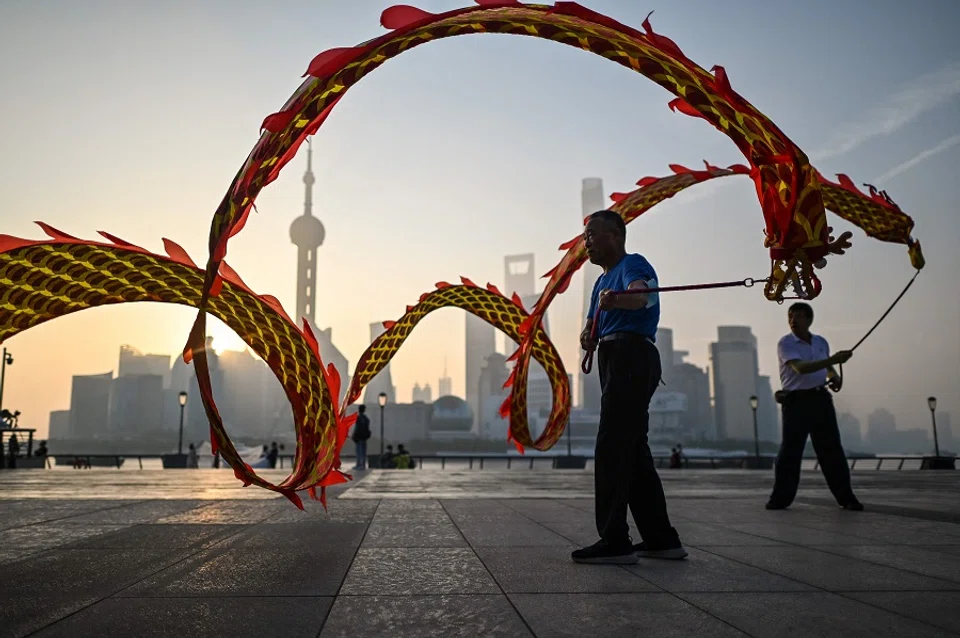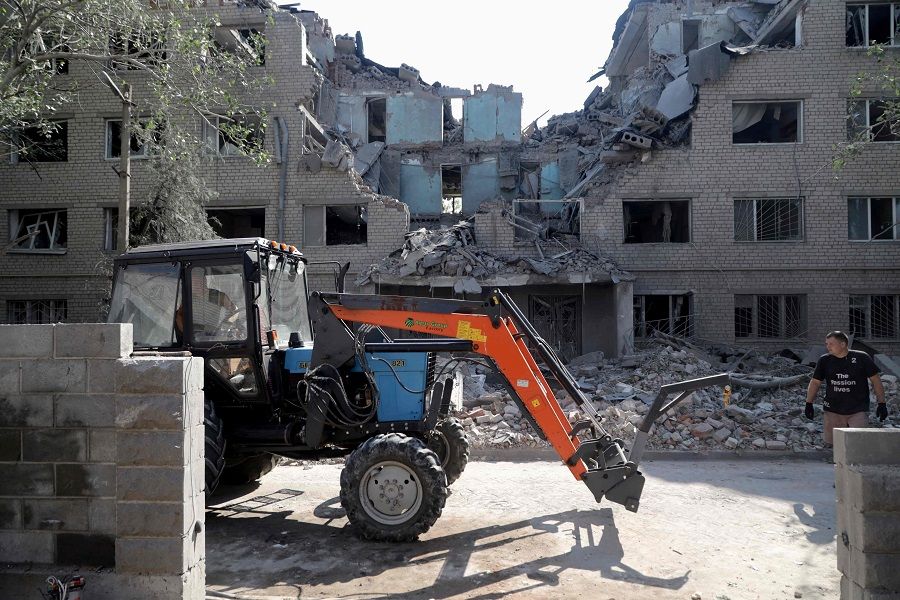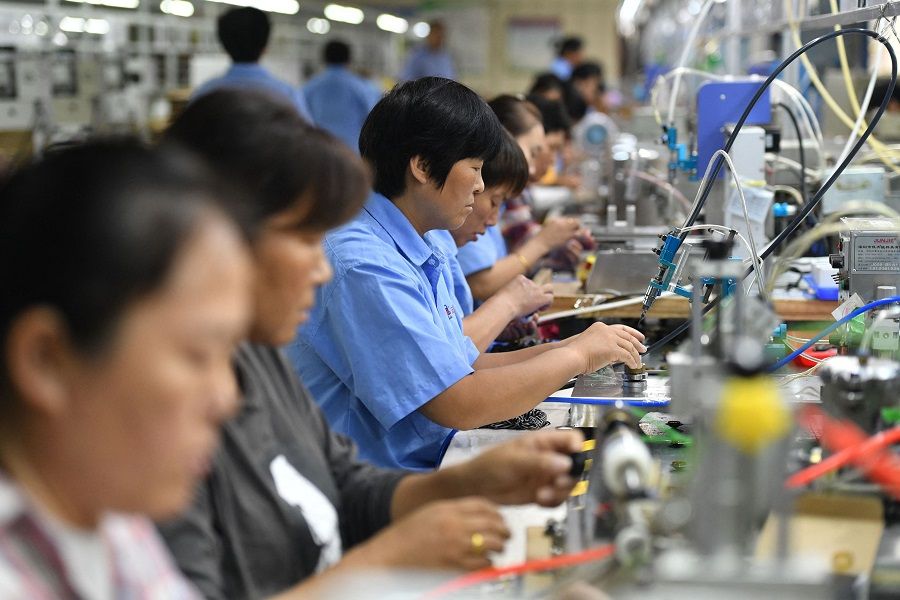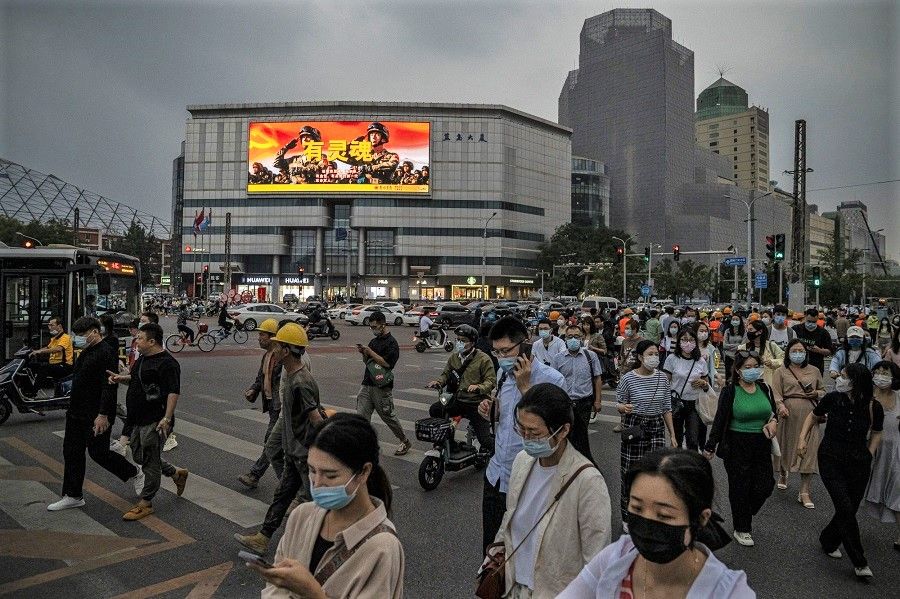[State of our world] China's future in a politicised world

The world today is rapidly shifting from an economic world to a political world in which the operating mechanisms are very different. In the economic world, competition is about who wins more. In the political world, it is about who loses less. In other words, the shift is from win-win to zero-sum.
In this milieu, China seems to be hemmed in by unfriendly parties, precisely because the logic of international relations has changed, such that what used to work well is no longer functioning.
China's misconception about its success
Throughout history, periods or regions of relatively free trade had all existed as such by being predicated on a stable political structure. Think, for example, how the Mongol empire opened up the corridors of Euro-Asian trade and commerce from the 13th to the 15th century, or how free trade unfolded between different parts of the British empire, the "empire on which the sun never sets", in the 19th century. Conversely, when regimes were locked in intense struggles with one another, trade could only be marginalised and subservient to political logic.
The liberalist international order was promoted across the world by the US after World War II. It later gave rise to the trend of globalisation after the Soviet camp was brought down by the Cold War. It was during the formation of this economic world that China hitched a ride on this trend and began its own development.
Back in those early years, China was economically insignificant. Politically speaking, with the USSR disintegrated and all of Eastern Europe falling to the West, the days of the Chinese regime were thought to be numbered. It was supposedly only a matter of time before the country evolved towards liberty and democracy.
Led by Deng Xiaoping, the reformists within the Chinese Communist Party (CCP) itself were also convinced that the old ways were not working and had to be changed. Deng put it very explicitly: whether the economic reform ultimately succeeds or fails would depend on political reform.
The misconception here is to ascribe the success of China's economic reform and opening up to the continuation, instead of the revamp, of the old system.
Now, 40-odd years later, not only is the basic framework of the political system still unaltered, the latter-day leadership gains confidence from the huge success of the economic reform, and imagines it can stage a comeback of the dethroned.
The misconception here is to ascribe the success of China's economic reform and opening up to the continuation, instead of the revamp, of the old system. Thus, Deng Xiaoping's "this has to be revised" morphs into "what should not be changed will never be changed".
China's isolation by mainstream countries
The rise of China injects a different kind of political logic into the post-Cold War, unified political order of the West and threatens it. As a result, the logic of trade and economy is eclipsed by the needs of political struggle.
The economic world begins to give way to the new political world in which separate camps are crystallising around different political logic and fragmenting the globalised world. The liberalist order is reducing its coverage, trying hard to exclude China, Russia and other political "divergents", so that they may not partake of the public goods provided by this order.
... given that it is necessary to take its economic transformation to the next level, what China needs more are the developed countries.

But then liberalism itself is currently in crisis. It is losing much of its attraction. For all its glory as the victor of the Cold War, this ideology is at the end of the line.
Although it can inspire solidarity among developed countries, Western democracies will not be able to handle the new problems of the times unless they implement major reforms. Should they fail to do so, they will keep losing their edge in ideology and right of discourse internationally. Many countries that are discontented with the West will then switch allegiance or find another way out.
The rise in the status of "third world" countries is helpful for China's current state of isolation among the mainstream countries. That's because China generally has good relations with this disadvantaged group. Nevertheless, there are many pitfalls and limitations in how China may develop its relations with the third world.
Going down this path can gain political benefits, but given that it is necessary to take its economic transformation to the next level, what China needs more are the developed countries. Third world countries are of no help on this front. In fact, they would drag China down. That China is recently giving large-scale debt relief for third world countries again tells us enough.
The longer the war in Ukraine drags on, the more urgently Russia will seek to strengthen its para-alliance relations with China.
Three critical points for China's future
There are three areas in which developments may drastically alter the fate of China - namely, relations with Russia, Taiwan, and decoupling from the West.
Maintaining a distance from Russia
Russia's fortunes have been completely changed by Putin's war on Ukraine. His country is not going to bounce back in the next 20 or 30 years. It might even fall into permanent ruin, and find itself marginalised henceforth, such that it can only rely on selling energy and raw materials for survival.
Its arms industrial export will be outpaced by that of China and other countries. This is inevitable due to how backward Russia's semiconductor industry is. With the weapons of the future being more and more intelligent, Russian-style bulkiness and unwieldiness are already outmoded. The longer the war in Ukraine drags on, the more urgently Russia will seek to strengthen its para-alliance relations with China.
China's goal is to join the ranks of the first-tier countries, but forming an alliance with Russia would entail a long-term face-off with just these countries.

Pressure exerted by the West from both the European and the Asian end is pressing the fates of China and Russia together. Should the two countries form an alliance again, they would fare better than the Eastern camp of the Cold War era. Their economies are strongly complementary.
Together, the two countries occupy central positions in global industries, trade, energy, and supply chains for raw materials. Moreover, they are both heavyweight military and nuclear powers. The alliance would thus be fine as far as security goes. However, in terms of science, technology and economic development, it would almost certainly stay on the level of second-grade countries for a long time to come.
China's goal is to join the ranks of the first-tier countries, but forming an alliance with Russia would entail a long-term face-off with just these countries. Therefore, China needs to be cautious and make sure that it does not get dragged down by Russia.
Avoiding war in the Taiwan Strait
With regard to the Taiwan issue, China will face more and more provocations from both within and without. Should the matter be handled badly and war break out, China would probably be subjected to all-around sanctions by the West and some surrounding countries.
They might put an end to the great cause of China's national rejuvenation.
Russia's situation in the war against Ukraine has set a precedent. The Western countries already have the experience and organising capabilities to impose deep, across-the-board sanctions on a country. Let's bear in mind that Russia's dependence on foreign countries is way less than China's.
Foreseeably, in the case of China, the sanctions brought on by any ill-timed reunification by military force will be deeper, more comprehensive and much more destructive. They might put an end to the great cause of China's national rejuvenation.
Staying connected to the advanced world
The intention of the West to decouple itself from China is unfolding faster than expected, yet China apparently still believes that globalisation is irreversible. It was such confidence that had made China feel comfortable about leaving the fate of its economy to the international division of labour.
China's share of divided labour is concentrated in the intermediate and low-end industries, which are replaceable, whereas the West and developed countries elsewhere securely occupy the high end, where technologies and industries cannot be easily switched out.
So far, China has remained aloof in its attitude towards decoupling. It continues to believe that the ecology of its industrial chains can never be replicated; that its " whole nation" systemic capacity for technological problem-solving will suffice; that the US can never do without value-for-money Chinese imports; that the Western countries are all desirous of China's enormous market; etc.
Only as the West begins the process of decoupling does China realise that so many of its key technologies and domains are reliant on the West.

There was once a conference held for the Chinese semiconductor industry, attended by top manufacturers, scholars and pertinent government officials. They discussed the extent to which the industry depended on foreign countries, as well as the specific facets where such dependence mattered. In the end, the discussion failed to paint any clear picture. What we have here is something like air, which we breathe all the time and yet whose existence is seldom registered in our consciousness.
Over a period of four decades, China has gotten used to dealing with the West, so much so that the incredibly intricate connections and the benefits derived from them have been buried in the subconscious. Only as the West begins the process of decoupling does China realise that so many of its key technologies and domains are reliant on the West.
The urgent task at hand for China is to figure out how to stay connected to the advanced sectors of the West as much as possible.
This is a failure to see that the economic world is no more, and that China is facing the political world instead. If the West manages to build a complete supply chain that bypasses China, the capacity for innovation and potential for development would far outstrip this country's domestic grand circulation. Thus, as time goes by, the gap between China and the world's truly advanced might gradually widen.
Although this does not necessarily mean that China would stand by to take the punches, some level of backwardness would nevertheless be inevitable. The urgent task at hand for China is to figure out how to stay connected to the advanced sectors of the West as much as possible.
This means no more selling of the "Chinese model" and "Chinese solution", or engaging in high-risk, low-return, easily castigated mega-projects like the Belt and Road Initiative.
China's options
China should, firstly, consider a strategic contraction. Given that it is a beneficiary of the existing order, has no rallying power to take the lead, and that this is a time when the high-profile is bound to get shot, what it should do is scale back, do its best to return to concealing its edge, while supporting and encouraging the US to stay at the helm.
Currently, both China and Russia are glaring targets, yet they insist on playing the lead on the international stage. Putin's Russia actually goes further than China in self-magnification as it is taking on the whole of the West with an economy smaller than that of Guangdong province.
No more Chinese model or solution
One possible national policy to adopt is a full contraction of the foreign frontlines. This means no more selling of the "Chinese model" and "Chinese solution", or engaging in high-risk, low-return, easily castigated mega-projects like the Belt and Road Initiative.
Accordingly, in matters of foreign economic and trade relations, China is to mainly rely on private corporations. The state is not to engage anymore in vanity projects for impressing other countries.
... if China is no longer seen as an "existential threat", they will have the chance to push for free trade and globalisation again.

Actively dealing with decoupling
Secondly, China has to deal with decoupling actively and earnestly, and not wait passively for it to happen. Every industry should submit a report that assesses the likelihood, specific manner and impact of decoupling for itself, as well as suggests what countermeasures may be taken to prevent, delay or thwart decoupling. There should be a national agency to consolidate such reports from all industries and formulate overall countering strategies.
China's goal is not only to prevent decoupling, but also to strive to effect a return from the political world to the economic world. While in political world mode, countries around the world will suffer difficulties like dramatic increases in costs of production, falling living standards and so on.
However, if China is no longer seen as an "existential threat", they will have the chance to push for free trade and globalisation again. After all, the driving forces behind the previous round of globalisation are not gone, only politically suppressed.
The precondition for growing approval is that China must keep improving itself, and make itself more easily understandable and acceptable.
Gaining global approval
Thirdly, China should strive to gain the approval of as many countries as possible, rather than always emphasise "Chinese characteristics". This will help to weaken the perception of the "China threat", which has largely been driven by emotions and logical inference.
The actual impact of the rise of China on the Western countries' interests is not as serious as claimed. On the contrary, there are tremendous gains for the developed countries here. Their companies make tons of profits while value-for-money Chinese goods lower the cost of living for the common folk.
The ever-growing demands of the Chinese market constitute the biggest engine of the global economy, and China is shouldering part of the supply of international public goods, from which third world countries benefit widely. The precondition for growing approval is that China must keep improving itself, and make itself more easily understandable and acceptable.
China's difficulties: boastfulness and susceptibility to personality cults
The biggest difficulty faced by China is twofold: the Chinese people's inflated sense of greatness and the obstinacy of the highest echelons. Putin is a living, blood-dripping example of what can happen. His decision to invade Ukraine is foolish, no matter what angle one looks at it from.
Even though Russia has enough collective wisdom to make more circumspect and effective decisions to solve the problems that Putin seeks to solve through war, there is no longer any room for differing views in the highest echelons of its government. Consequently, Russia breaks basic international rules brazenly and draws widespread indignation, causing itself to fall into isolation and quite a predicament.
Even now, we have yet to see any self-correcting mechanism being activated in that country. Its "great leader" is still determined to push ahead no matter what. He keeps up the tough talk, claiming that he must achieve (and is achieving) "all strategic objectives", which he had never clearly set out in any case.
This is not all a matter of having waded in too far. More notably, it's because Putin has been elevated too high, so now he's got no face-saving way to back down. Such is the consequence of personality cult, something which the Chinese people and the CCP had suffered so much from.
From the perspective of modernisation, personality cult seems so crude and vulgar. It is also extremely repulsive to post-Cultural Revolution Chinese society. Even so, there are still people who delight in such a thing. Perhaps this has to do with China's tradition of imperial rule and its lagging behind in political reform.
Related: [State of our world] From Three Worlds to Four: Mao's revised theory of an emerging global order? | [State of our world] The world will be very different from the one we're used to | [State of our world] Is the world really heading into disorder? | Will China and Russia join hands to push for an alternative world order? | Cross-strait reunification is not a precondition for China's national rejuvenation | Are Putin and Xi Jinping forging a new chapter in international relations?
